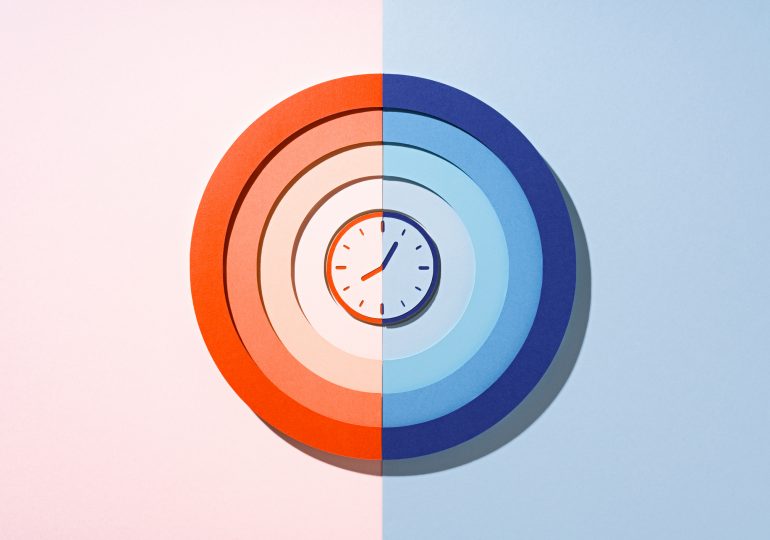If your doctor’s office called to schedule you for a treatment, how would you pick your appointment? Most likely, the scheduler would look at the available time slots, and you’d hear a list of available times—some early in the day, some later. Since you’ll get the same care regardless of when you go, you’d pick the one that best fits your schedule. No big deal, right?
Early reports from a recent study suggest that when it comes to a common cancer treatment, appointment timing may in fact be a very big deal.
[time-brightcove not-tgx=”true”]
At a June meeting of the American Society of Clinical Oncology (ASCO), researchers from China presented preliminary findings of a study—not yet published in a peer-reviewed journal—where 210 patients receiving treatment for advanced lung cancer were randomized to receive two important treatments either before or after 3 p.m. One of those treatments was standard chemotherapy. The other was an immunotherapy treatment designed to boost the ability of the patient’s immune system to kill cancer cells that are growing out of control.
After following patients for about 18 months, researchers found that those who had their infusion earlier in the day had improved survival, going months longer without progression of their cancer, compared to patients who had their infusion later in the day. They also saw evidence of increased immune-system response in the patients with earlier treatment times.
So, why did they think treating cancer patients earlier in the day might improve cancer outcomes?
Read More: The Race to Explain Why More Young Adults Are Getting Cancer
One factor is the body’s circadian rhythms. Our immune systems function differently throughout the day, so giving immunotherapy at various times of day could generate different effects, as this new study suggests. In fact, the research builds upon other studies that looked at the timing of this type of immunotherapy in a number of different cancers; they also found improved outcomes among patients treated earlier in the day.
For example, in a 2025 study analyzing data from 713 patients in France and China with advanced lung cancer, researchers found that patients who received immunotherapy earlier in the day lived longer with cancer. Patients who received their drug infusion before 11:30 a.m. lived an average of 33 months after their first treatment, while those who received treatment after 11:30 a.m. lived an average of about 20 months. This is an astonishing difference, which would seem too large to be possible if similar differences weren’t being reported in the latest randomized trial. It would suggest that something as simple as when in the day a person with cancer receives an immunotherapy could impact survival by as much as one year.
To put that into perspective, for some cancer treatments, whether you get the treatment or not—not simply when in the day you might receive it—improves survival by only a couple of months.
Read More: Gun Injuries of All Kinds Go Up During Hunting Season
Of course, circadian rhythms were only one potential explanation of the differences seen in these previous studies, which were predominantly correlational—meaning they couldn’t establish that early-in-the-day immunotherapy causes people with cancer to live longer.
It could have simply been that people who received their cancer drug infusions in the morning were different; they may have been more likely to survive longer from cancer regardless of when in the day they received their infusion. Maybe they were healthier (those with more medical problems might need more time to get to the doctor’s office, making early-in-the-day infusions less likely); wealthier (more resourced patients may do their best to get their treatment early so they have the rest of the day to recover); or generally have better access to care (patients who live in rural areas, where health care access is generally lower, may need to drive several hours to get a drug infusion, making afternoon appointments more common).
All of these factors could determine, at least in part, how long someone lives after a diagnosis of cancer. So if any of these things were true, it would be hard to disentangle whether afternoon appointment times lead to lower cancer survival, or if patients with lower expected survival tend to choose afternoon appointment times.
That’s why the reports from the ASCO meeting of this randomized trial—which does allow us to get at cause and effect when it comes to treatment timing—are so interesting. It suggests that these prior correlational studies have been onto something.
Read More: Why Do Taxi Drivers Have a Lower Risk of Alzheimer’s?
How do we figure out if these early, promising findings are real? Here are a few ideas.
First, let’s see how the peer review and publication process for this new randomized trial unfolds.
Second, this trial should be replicated—and quickly—for lung cancer and other cancers treated with similar immunotherapy. Cancer patients around the world receive immunotherapy every day, and it shouldn’t be difficult to randomize patients to receive treatment at different times of day.
Third, following patients in randomized trials takes time, so we should think creatively about how already existing data and “natural experiments” can be used to confirm these hypotheses. Researchers might be able to identify instances in which the time of day that patients receive immunotherapy is as good as random (e.g., when heavy traffic, a sick family member, clinic staffing issues, broken equipment, or other random factors lead someone who was previously scheduled for a morning infusion to receive an infusion later that day). We could then account for the issue that people who tend to prefer morning versus afternoon slots might be different in ways that are correlated with their ultimate cancer survival risk. This can allow us to determine whether the time of day someone receives cancer treatment really matters, without having to wait for a trial.
At the end of the day, if something as simple as appointment scheduling is enough to significantly prolong life for cancer patients getting immunotherapy, doctors should factor this in when planning treatments.
Leave a comment





